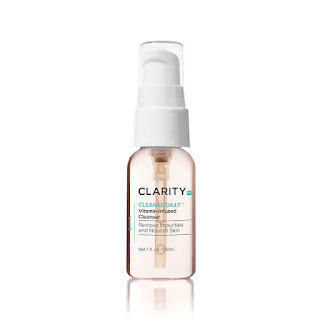What does your skin need? Hydration or Moisturization?
Currently, there is a great deal of discussion about the distinction between applying a moisturizer and just moisturizing the skin. Which of the following do you believe is the most suited for this case, and why do you believe that? What role may moisturizing and hydrating your skin play in helping you achieve your goals? Why is it vital to keep adequate levels of fluid and hydration in your body? We’re discussing the key differences between hydrating and moisturizing!
Let's start with a definition of hydrators and moisturizers...
When it comes to skincare, what is the difference between Hydration and Moisturization?
Water and oil are the same things when it comes to hydration and moisture, to put it another way. Your skin tends to get dehydrated when you don't drink enough water. Another possibility is that dry skin is caused by a lack of oil production in the skin's surface cells.
The need for a hydrating moisturizer or hydrator
When a hydrator (such as hyaluronic acid) is employed, humectants assist in the transfer of water to the skin's surface. Using a humidifier can assist in absorbing moisture from the environment and attaching it to the skin, allowing for greater absorption of water by the skin.
Hyaluronic Acid skin care moisturizer is a fantastic example of a hydrator that works wonders. In terms of skincare, it's similar to drinking a large glass of water, but it's better for your skin. The fact that hyaluronic acid is well-hydrated is the most significant advantage of using it. Hydration is essential for all skin types and concerns (acne, aging, dullness, etc.). Hydration is also essential for all skin types and issues (dry, oily, or mixed).
The function of a moisturizer in natural skincare
When applied to the skin, the components of an oil-based moisturizer help to seal in moisture while also leaving the skin feeling silky smooth. The skin's natural lipid (oil) barriers protect it from the damaging rays of the sun and other environmental factors. In contrast, as the skin ages, the lipid barrier diminishes, resulting in moisture loss from the skin.
When used combined, moisturizers and hydrators like hyaluronic acid help to keep skin moisturized while also forming a protective barrier from the environment. Product formulations that include both hydration and moisturization are common. We believe that this is a win-win situation!
Should you moisturize and hydrate your oily acne-prone skin?
A hydrating moisturizer is beneficial for all skin types, including those with oily skin, as well as for all skin issues, including those associated with acne. The skin is stripped of its natural oils by toners and harsh cleansers, prompting it to create even more oil in an attempt to protect itself from further dehydration. Increased oiliness and congestion on the skin are possible consequences of this condition.
How can you benefit from hyaluronic acid skin care?
Moisturizers and serums are the most common use for hyaluronic acid.
Moisturizers - Apply a moisturizer enriched with hyaluronic acid at the time of day when you would typically do so. If you can, use it twice a day, soon after cleansing, exfoliating, or using serums.
Serums - A hyaluronic acid serum is a little different from a conventional serum in that it necessitates a distinct technique. Massage a few drops into your face with the palms of your hands after you've washed it. While your skin is still moist, perform this action. Don't forget to apply a moisturizer right away to seal in all of the hydration you've just absorbed.
Moisturizing goods such as lotions, oils, and creams have as their principal function the preservation of moisture. In general, if your skin is oily, lighter lotions are preferable; if your skin is dry, thicker creams are preferable. If you're looking for a moisturizer, the majority of people choose a light lotion during the day and a heavier cream at night.
However, the time it takes to see results depends on the product's formulation. This is because hyaluronic acid lotions tend to have a short-lived effect, you may see softer, more hydrated skin after a few minutes of application. Although it is possible that a few months of patience may be required for people who are looking to reduce the appearance of fine lines and other signs of aging.

Comments
Post a Comment